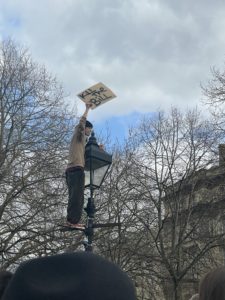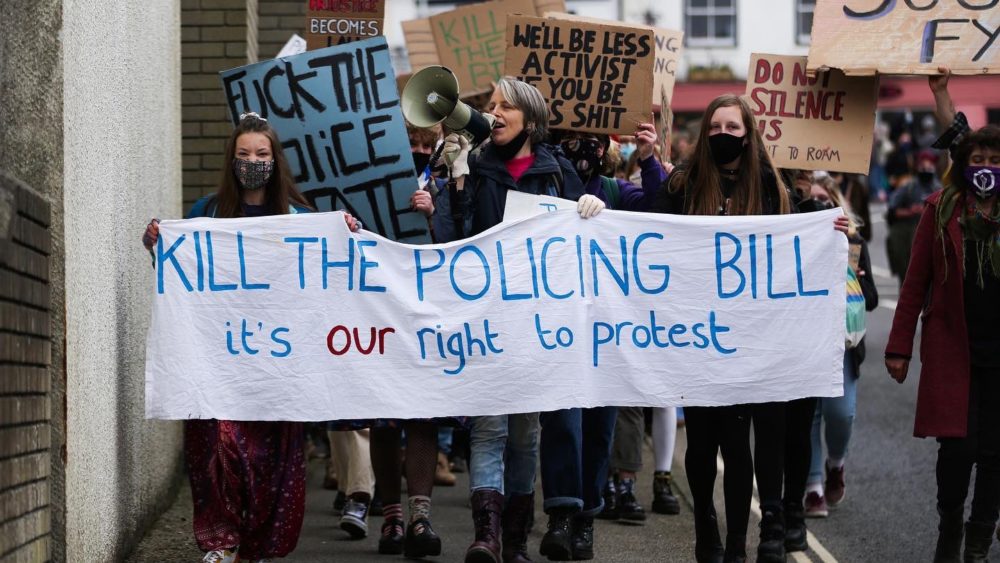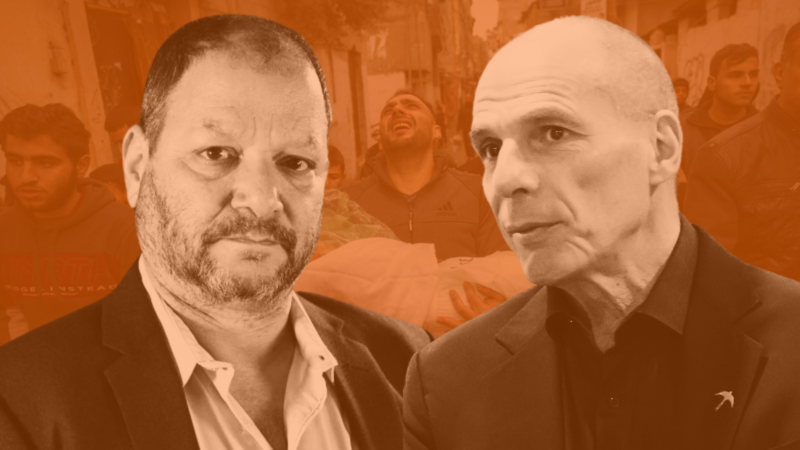The past week has seen a series of protests across the UK led by the feminist group Sisters Uncut, which were largely supported by much of the country’s progressive and liberal wings. The movement, labelled ‘Kill the Bill’, was born out of opposition to the Conservative government’s new Police and Crime Bill put forward by Home Secretary Priti Patel, which was set to be passed by the large majority enjoyed by Boris Johnson in the House of Commons.
The bill has been heavily criticised for its focus on increasing police powers against protests

Photo: Kill the Bill protest in Bristol.
Under the terms of this bill, the police could enforce time and noise restraints on protesters as well as criminalise “causing public nuisance” in the course of protest. For many prominent figures in British politics, the bill is a significant step towards authoritarianism and certainly a threat to the people’s right to protest — a cornerstone of democracy and an important part of the Black Lives Matter movement that picked up momentum in the UK last summer. While the Labour Party were initially set to abstain from voting on the bill, a shift in public opinion against it convinced the leader of the Opposition Keir Starmer that it was a threat to be taken seriously.
An important part of the growth of opposition to the bill was the recent campaign targeting male violence against women after the disappearance of Sarah Everard in London at the beginning of March
In the wake of this tragedy the movement’s hopes for reform were shattered by the extreme and seemingly performative response by police to a vigil held in Sarah Everard’s memory. The crowd was forcefully dispersed and several women were arrested. Pictures of policemen forcing women to the ground — at the vigil of a woman murdered by a policeman — shocked the nation and accelerated concerns over police powers and the government’s neglectful attitude to the demands of protesters. The bill does very little to target male violence and protect women, and in fact suggests that damage to memorials could result in up to 10 years in prison. This is in part a response to the toppling of statues, such as that of a slave trader in Bristol in June 2020. What is shocking is that it is potentially a harsher sentence than a man could receive for rape.
With Johnson’s 80-strong majority, it was never likely that the passing of the bill could be avoided altogether — even within his party, critics like ex-prime minister Theresa May voted it through despite vocal concerns. However, the ‘Kill the Bill’ movement succeeded in at least delaying the implementation of the bill, a significant achievement for Sisters Uncut given the disadvantages weighed against them — and a victory for peaceful protest.
Following events in Bristol on Sunday night, a large portion of public opinion in the UK seems to have once again shifted. A peaceful Kill the Bill march during the day descended into a chaotic mess after the sun went down, with police vehicles set alight and several officers injured by a minority of violent attendees. While the use of violence is entirely unhelpful to the movement’s ends, it is too easy to brand the chaos in Bristol as simply the excitement of a thuggish mob. The specific repercussions of the violence of Sunday evening are yet to be determined, but the charged tension of discourse surrounding it and the sudden demonisation of the protesters may be a cause for concern, as a sign of what may be to come under the new bill.
When people feel they don’t have an active say in democracy, and they are stripped of the right to protest peacefully and meaningfully, what happens?
Take the recent protests in Russia following the arrest of opposition leader Alexei Navalny, for example — policing of illegal protests quickly became violent as the police struggled to enforce protest laws which aimed to silence dissidence. Chaos ensued. In the UK, a woman was murdered by a police officer just weeks ago and her vigil was roughly broken up by more uniforms. Meanwhile, the government is attempting to pass further law restricting the right to protest peacefully, and the opposition leader is taking no initiative when it comes to challenging the government on the behalf of progressive movements.
In this sort of environment. It is therefore hardly surprising that, stripped of the possibility of peaceful political expression by the approaching bill, a minority of activists will eventually turn to more disruptive and even violent methods. Whether this is what happened in Bristol is unclear; even unlikely. But it may well be a premonition of grave things to come. Meanwhile, the reaction of mainstream British politicians has been dismissive at best, exploitative at worst — the situation is thought to have provided further basis for Patel’s continued campaign for the bill, which would only render the conditions witnessed in Bristol all the more volatile.
If Boris Johnson truly wants to re-establish Britain’s role in the world, it has to be done, not through an ambitious defence review and nuclear arms boost, but through acting as an example of strong democratic principles in the face of humanity’s greatest problems. Climate action, Black Lives Matter, women’s rights — these issues run the risk of being neglected by the existing structures that make up government, parliamentary politics and capitalism, and therefore they can only be decided by the people’s ability to make themselves heard.
Given the inertia and the built-in biases of the democratic system in the UK and elsewhere, the right to protest is an essential part of our future
For this, progressive forces must maintain the pressure on this bill and any others which arise to challenge the right to protest. DiEM25’s call for the strengthening of democracy across Europe is deeply connected with the struggle for political freedom of expression — democratise, or expect disintegration.
The views and opinions expressed here are those of the author(s) and do not necessarily reflect DiEM25’s official policies or positions.
Photo Source 1: Cameron Smith on Twitter.
Photo Source 2: Georgie Emily on Twitter.
Do you want to be informed of DiEM25's actions? Sign up here















